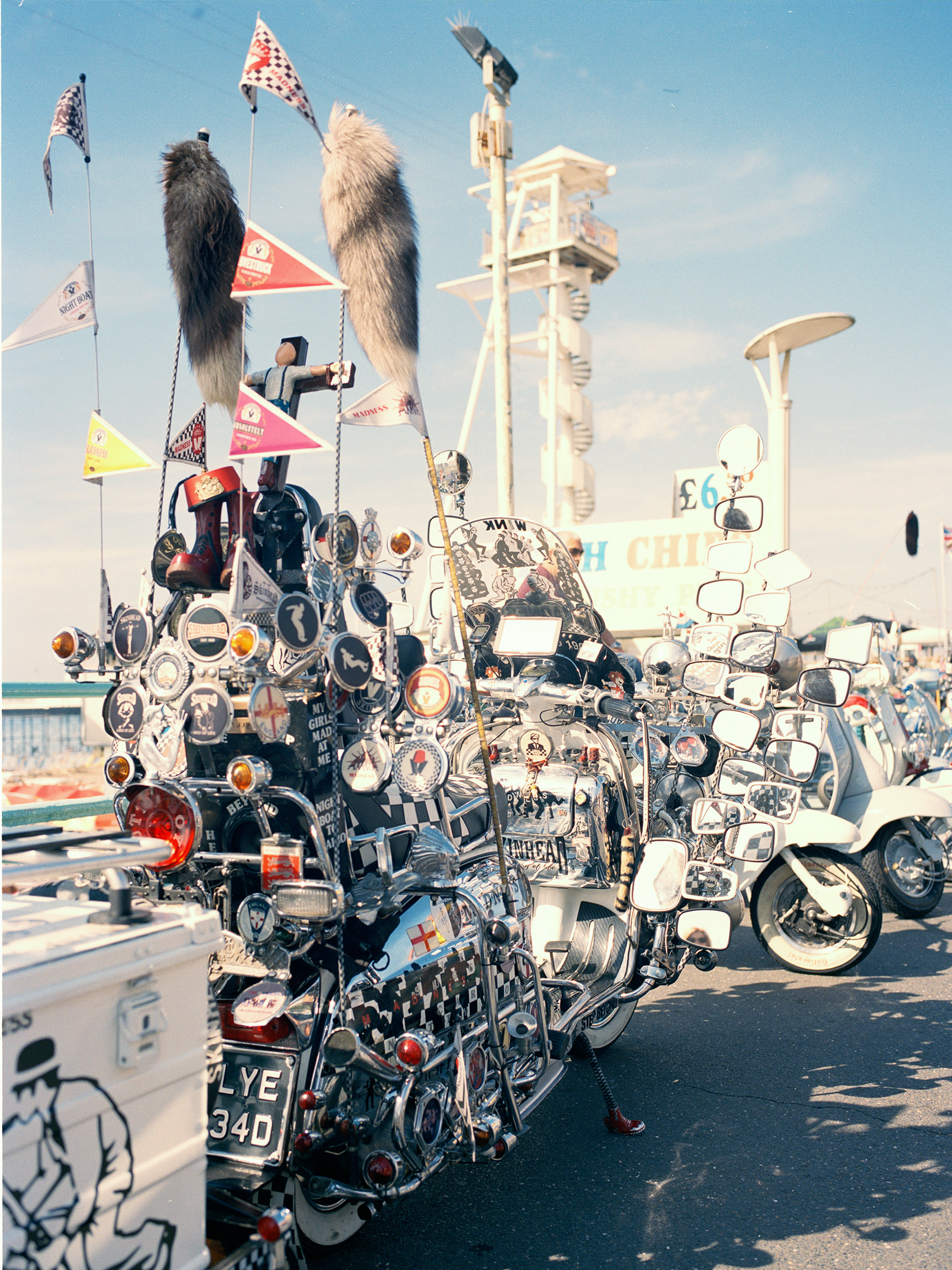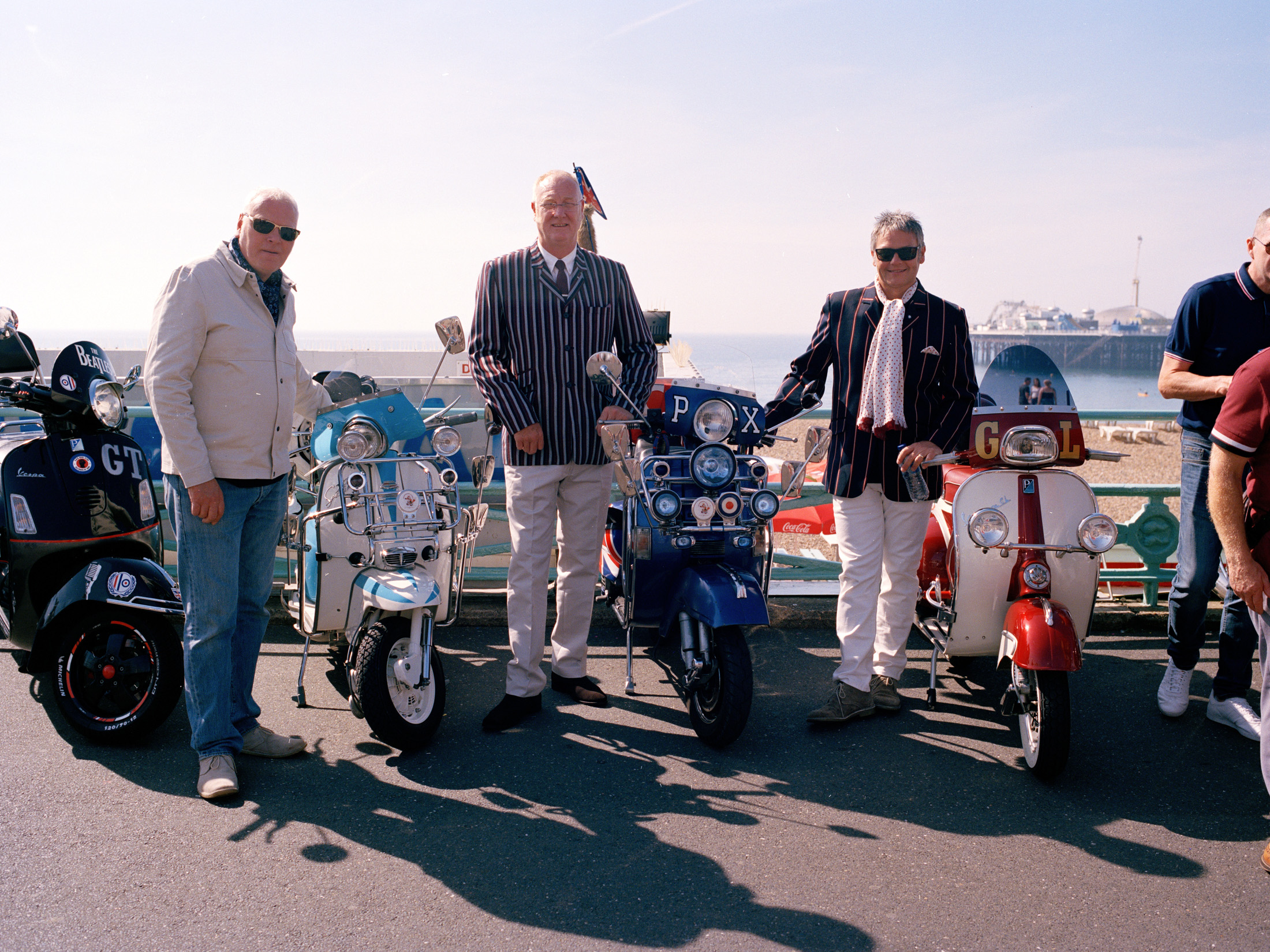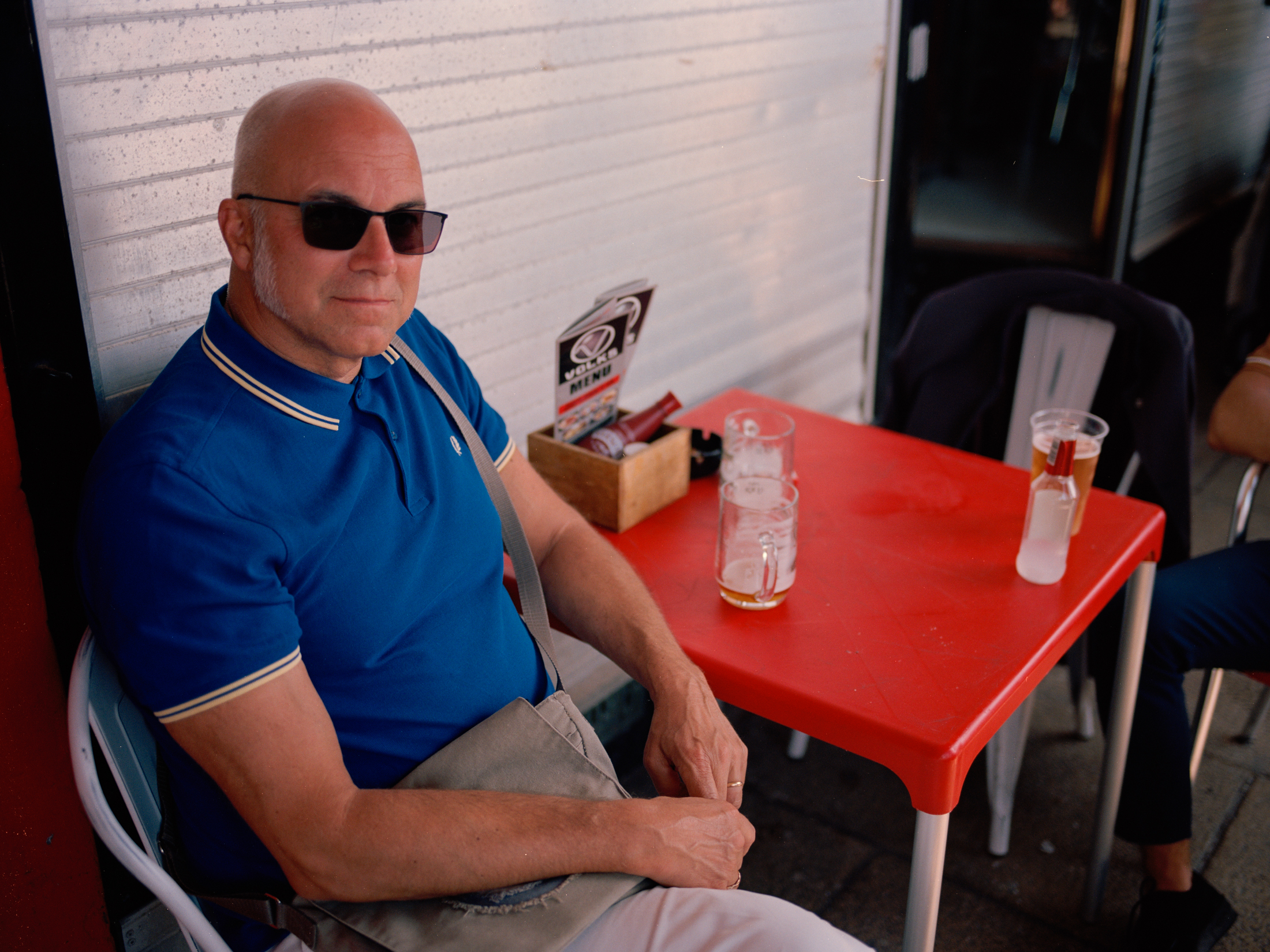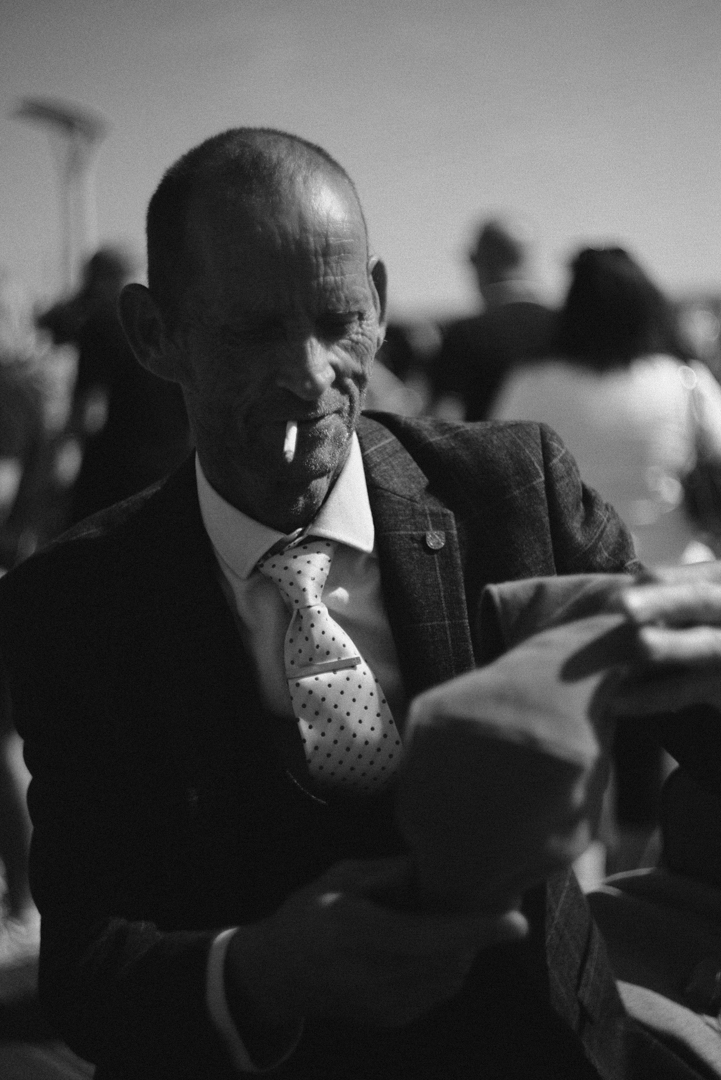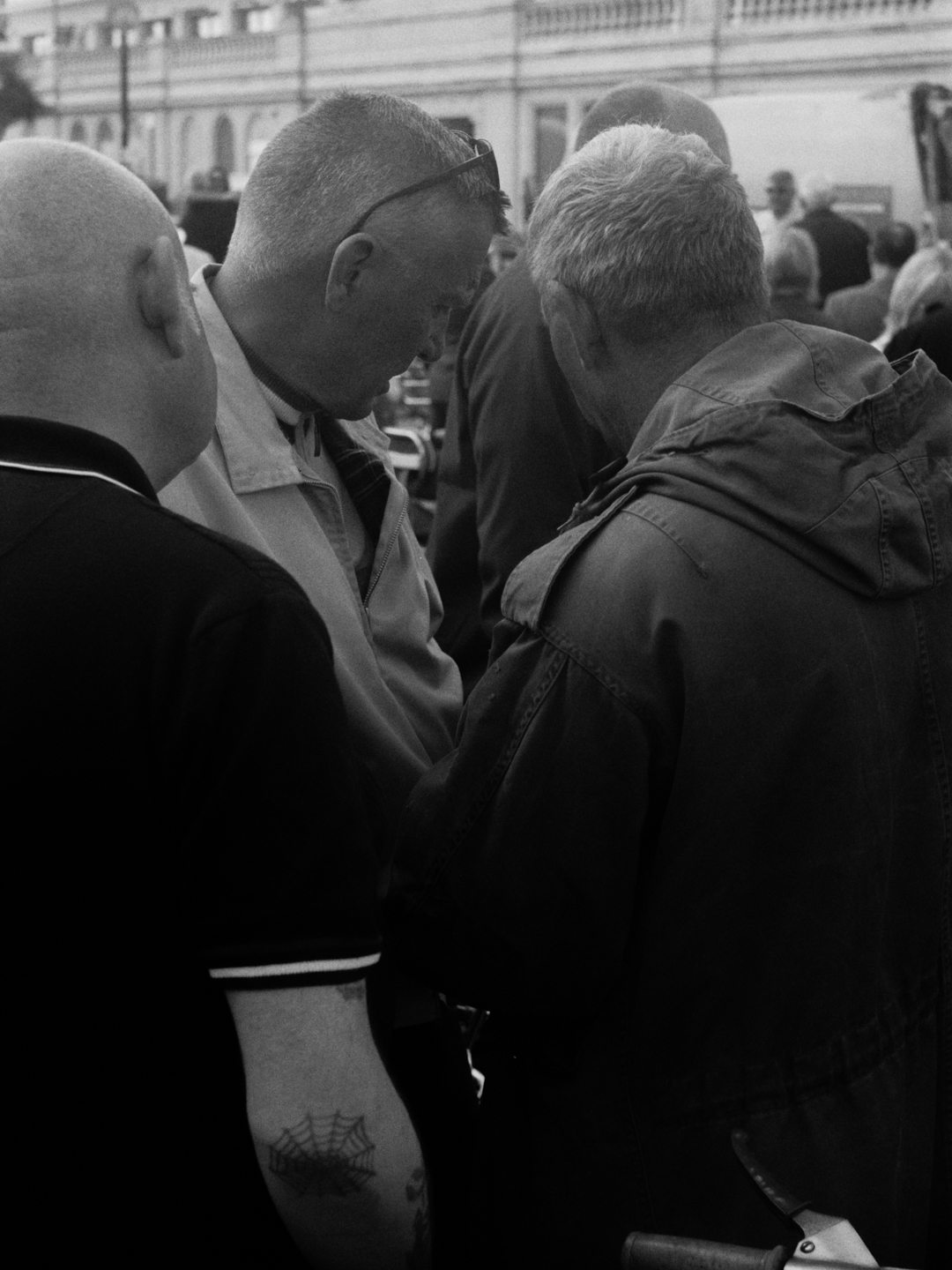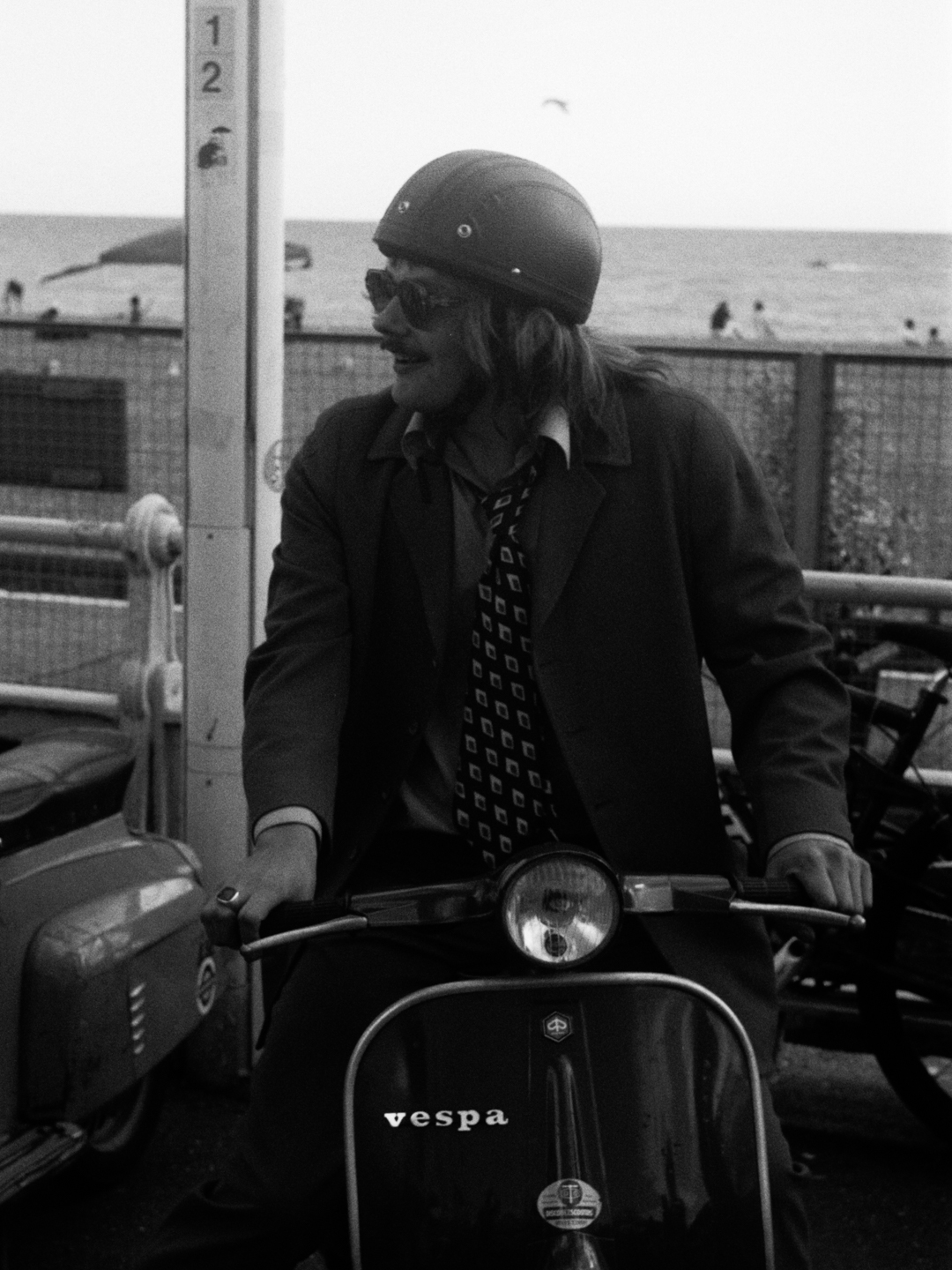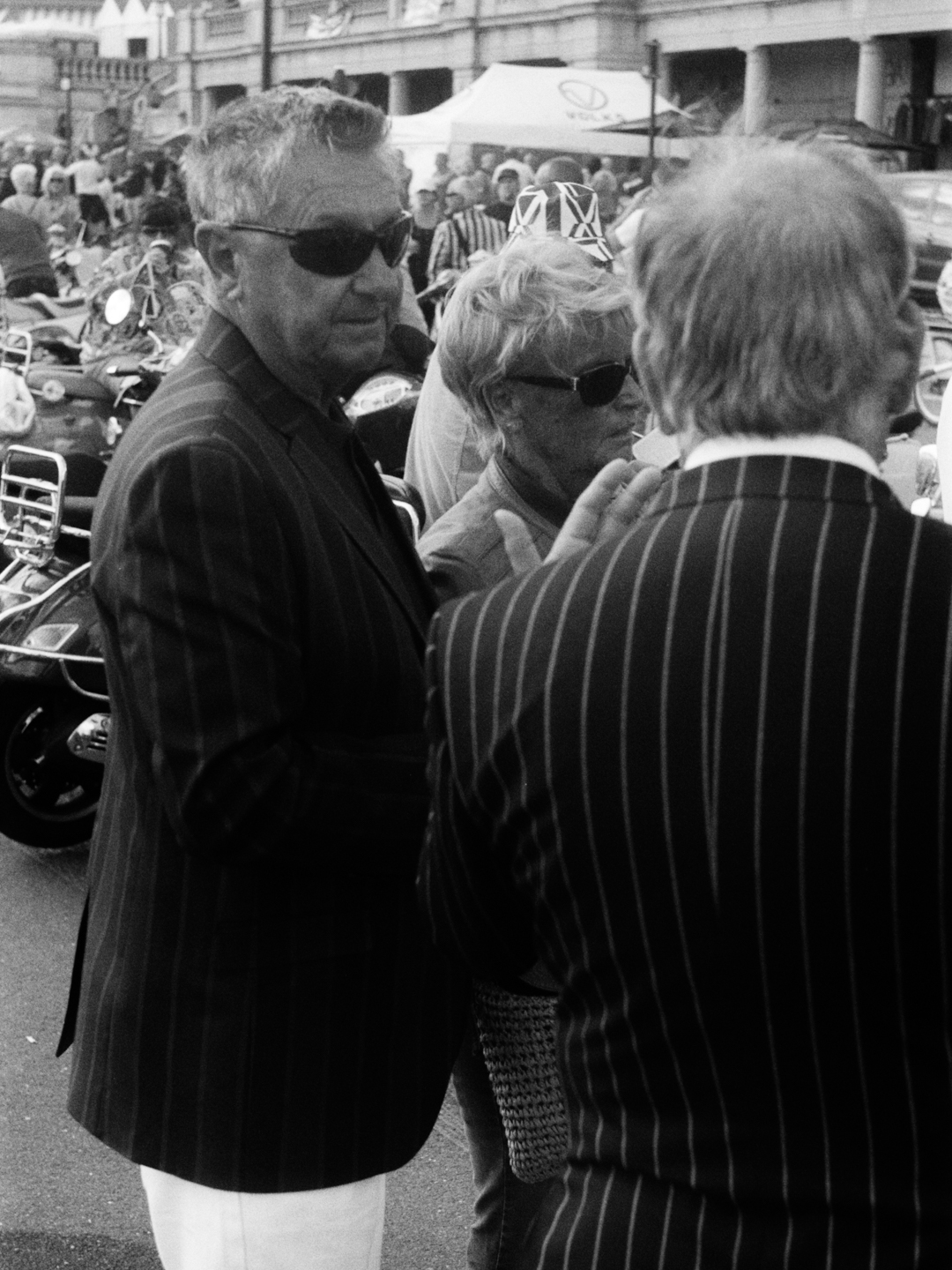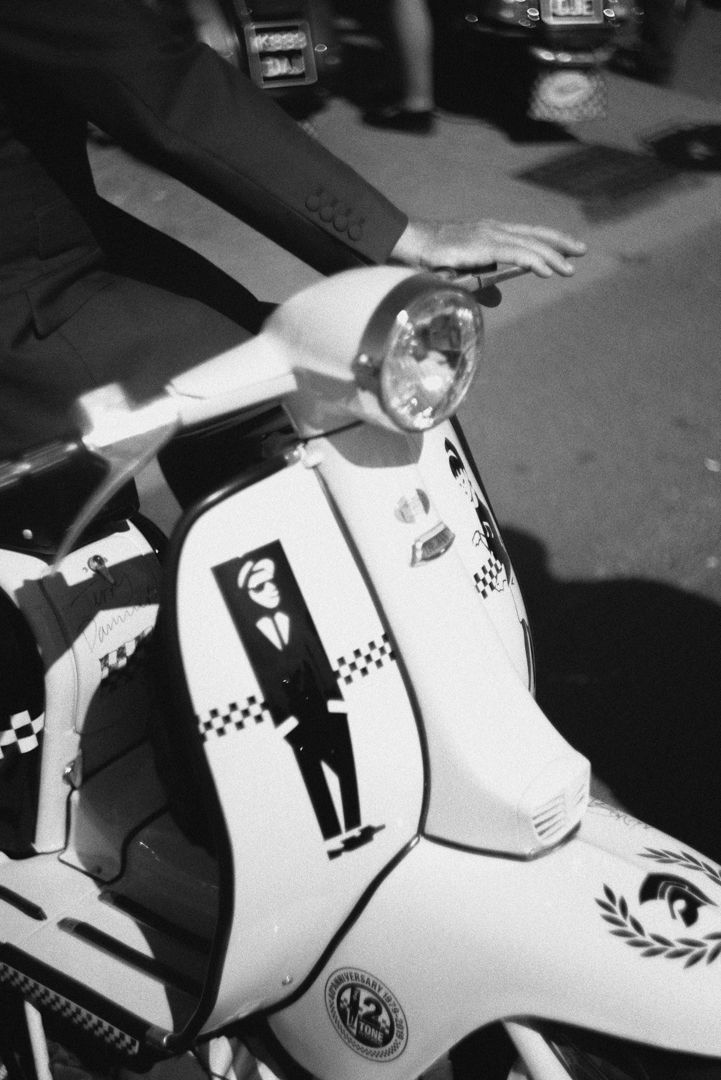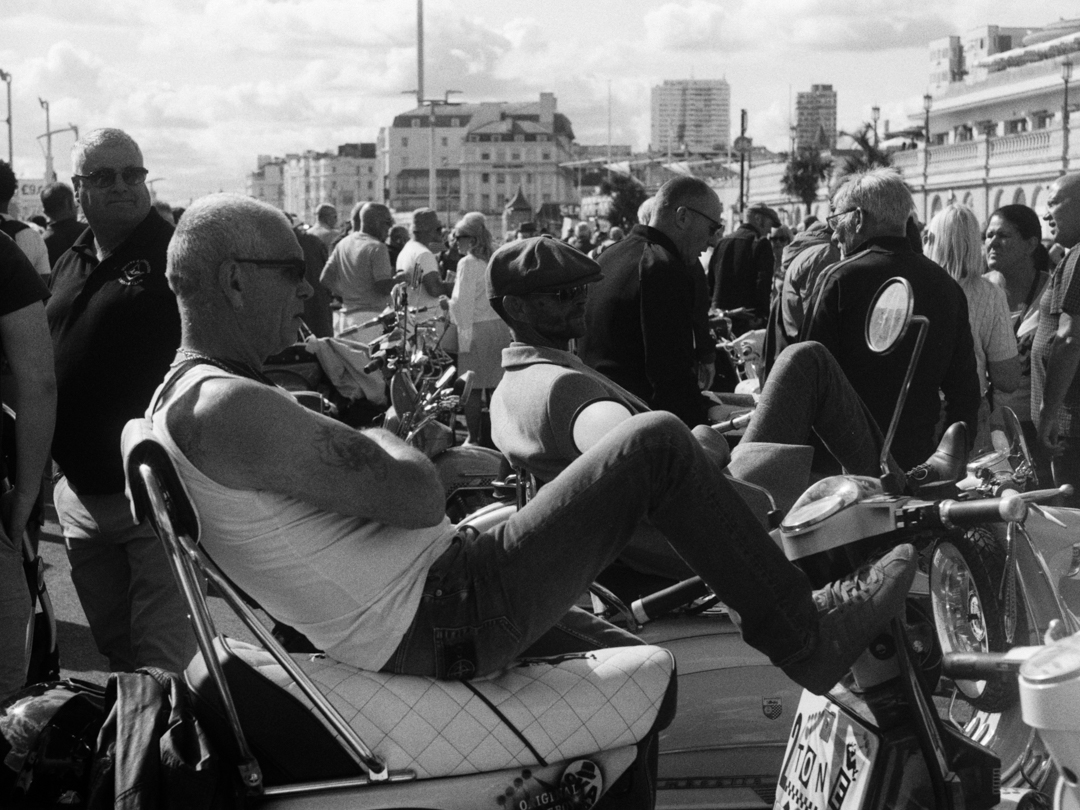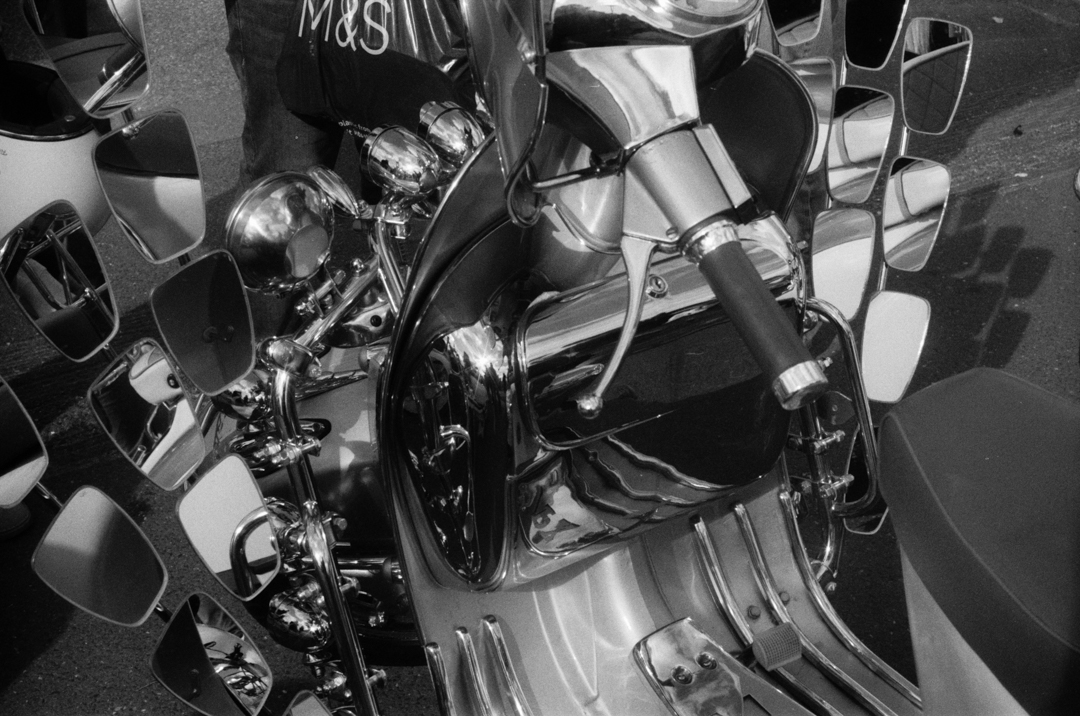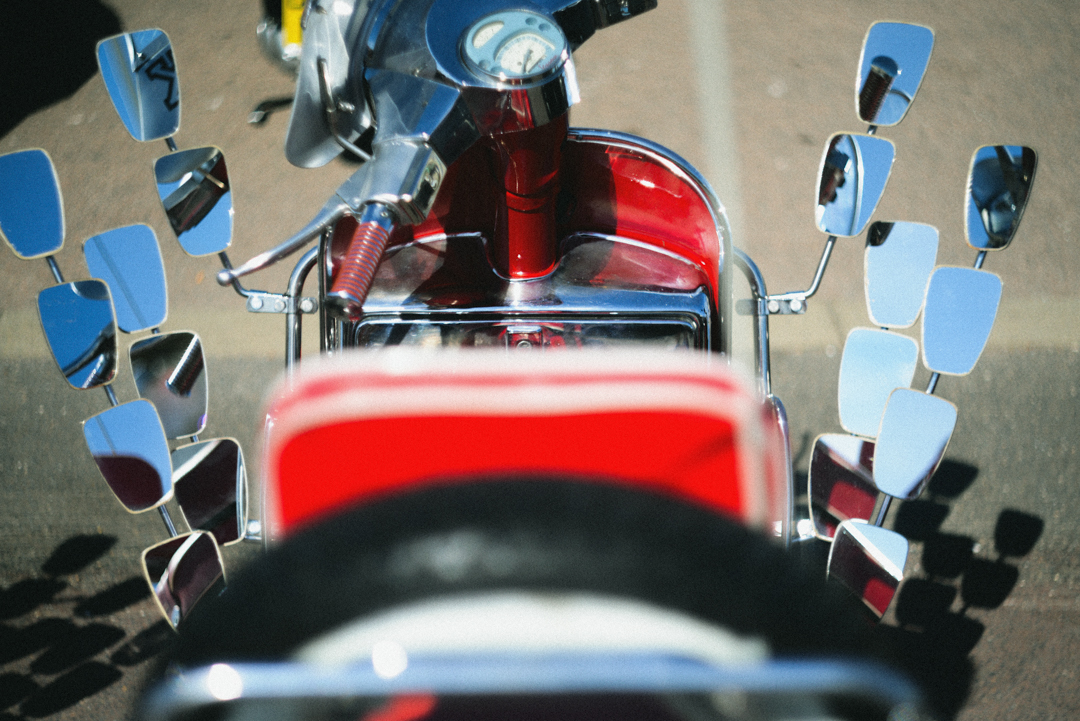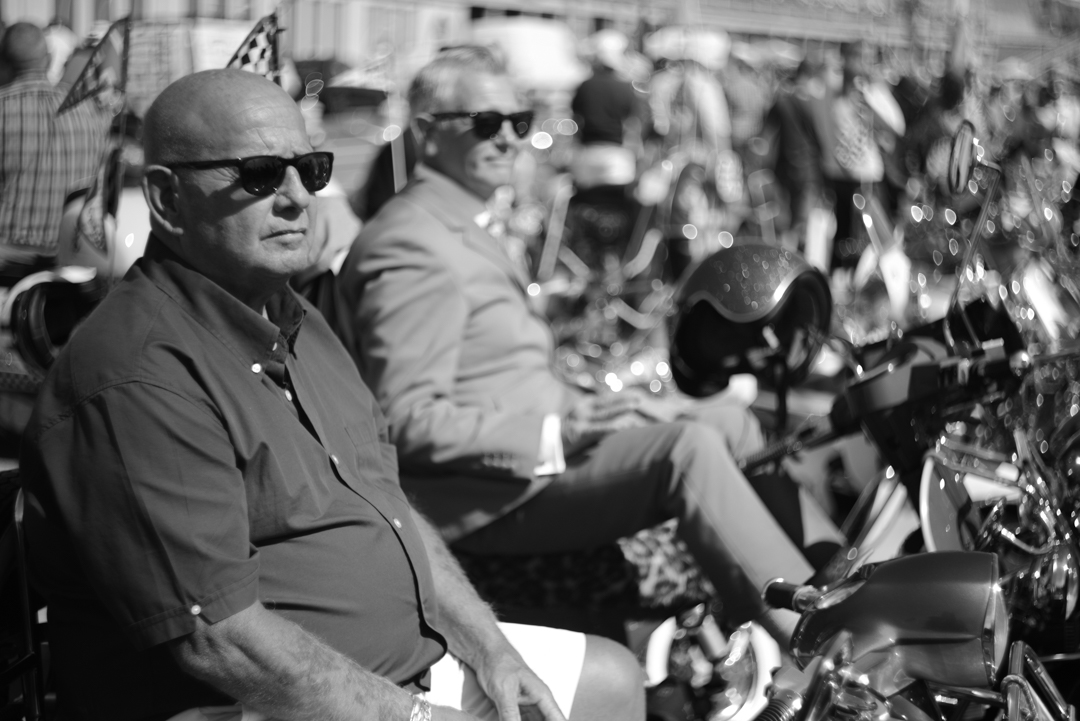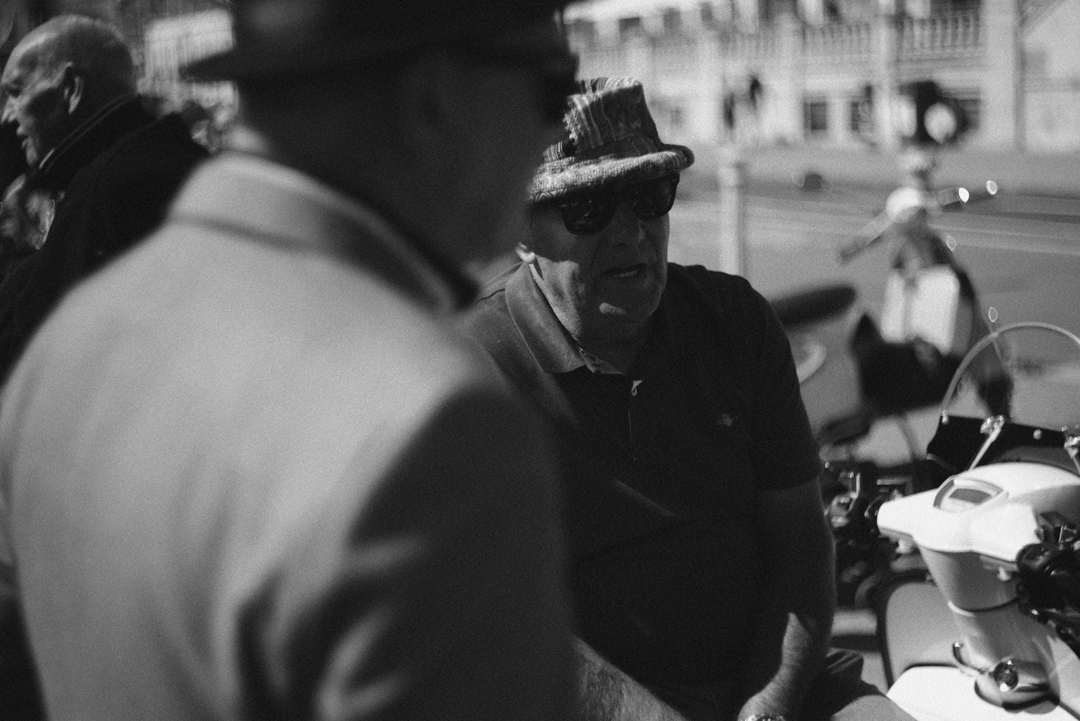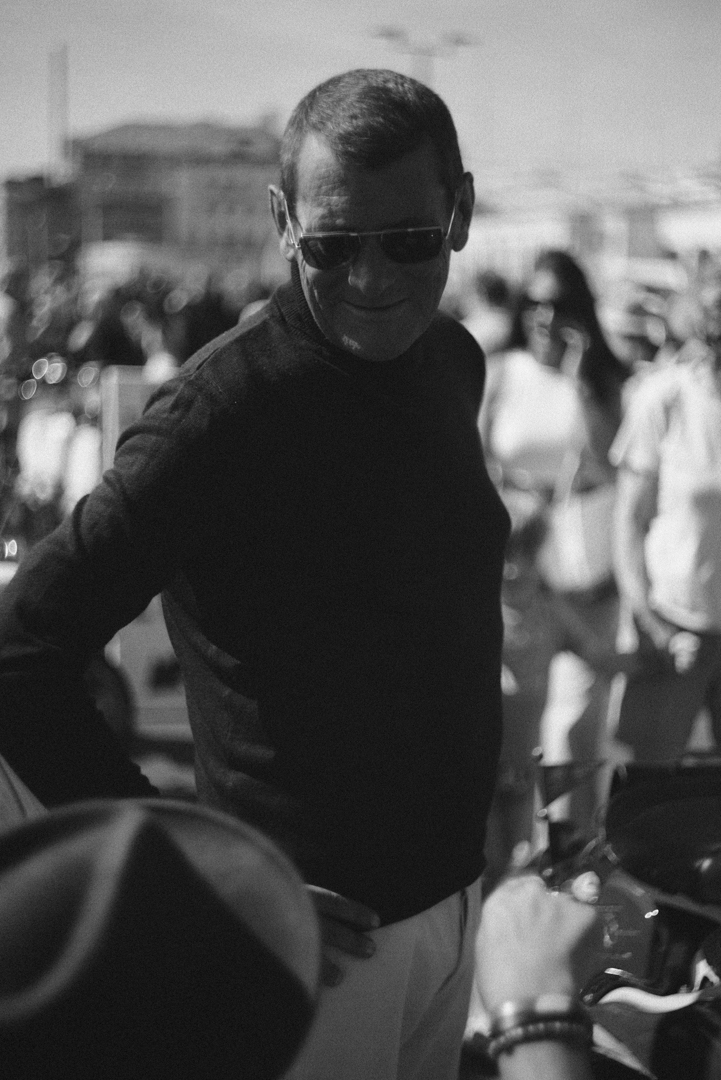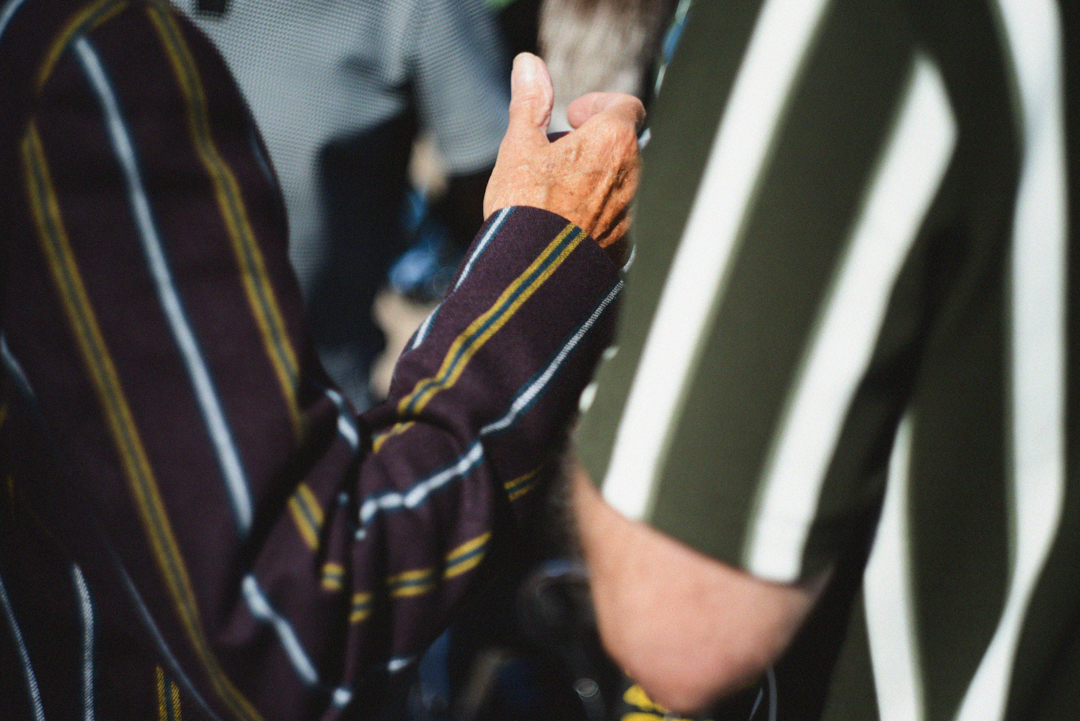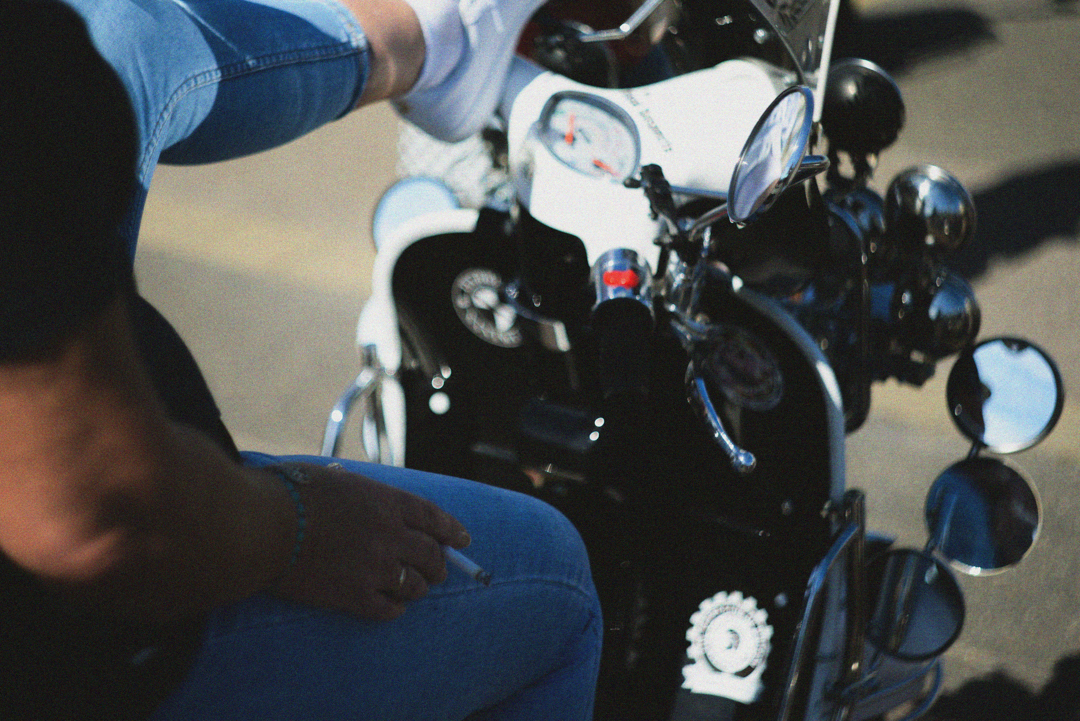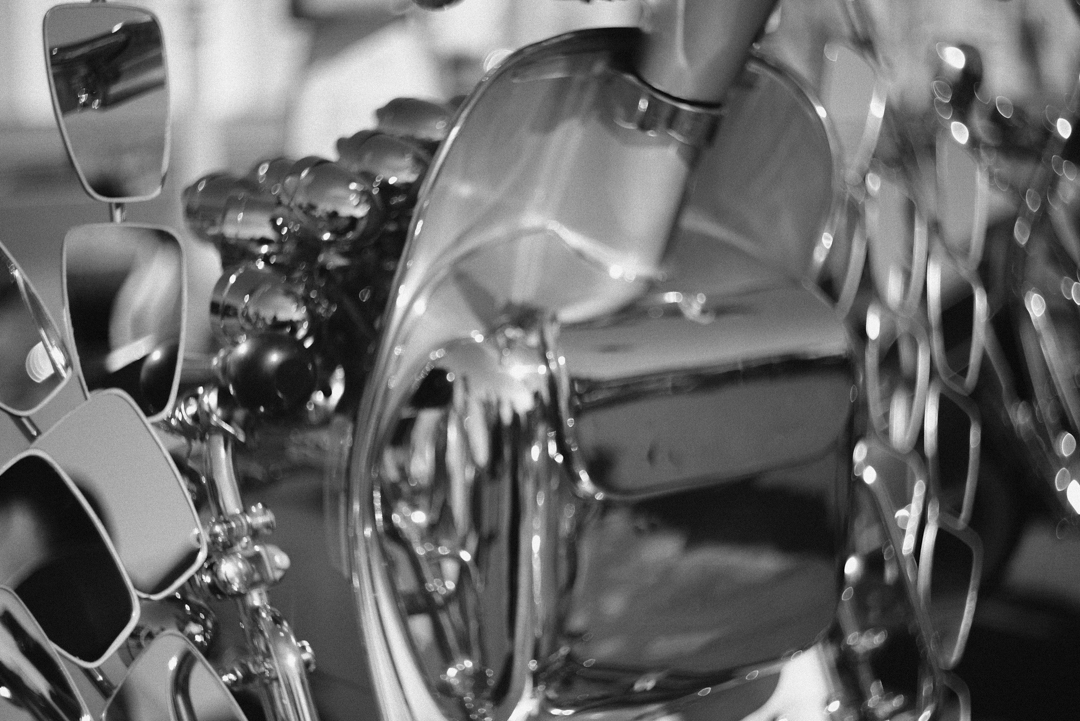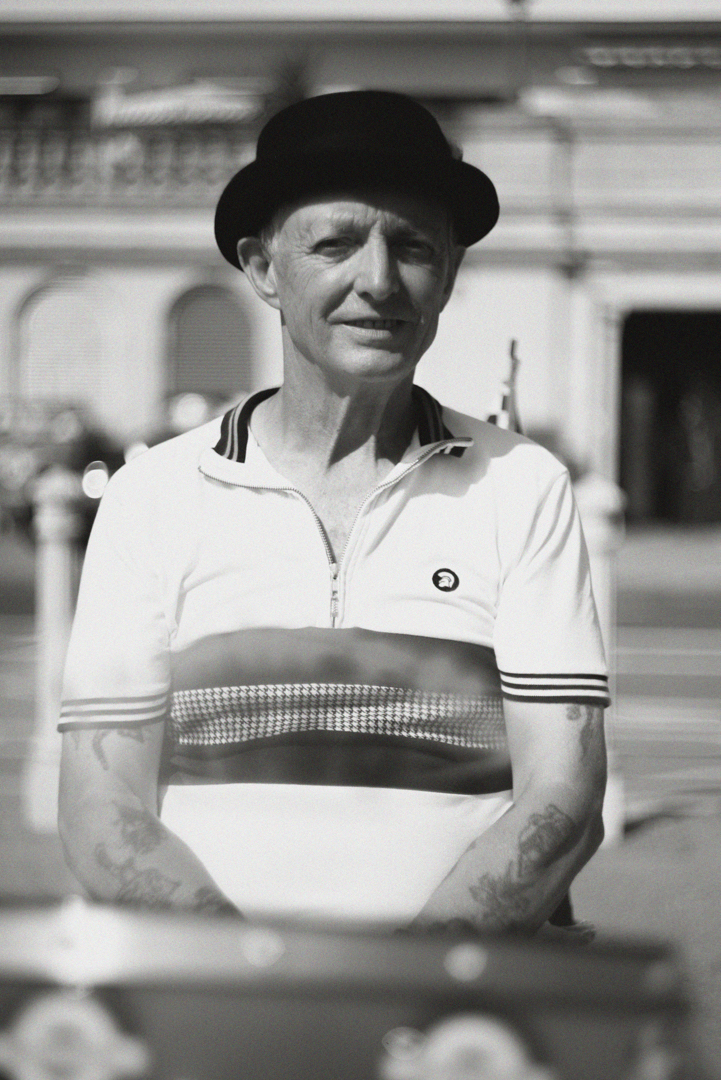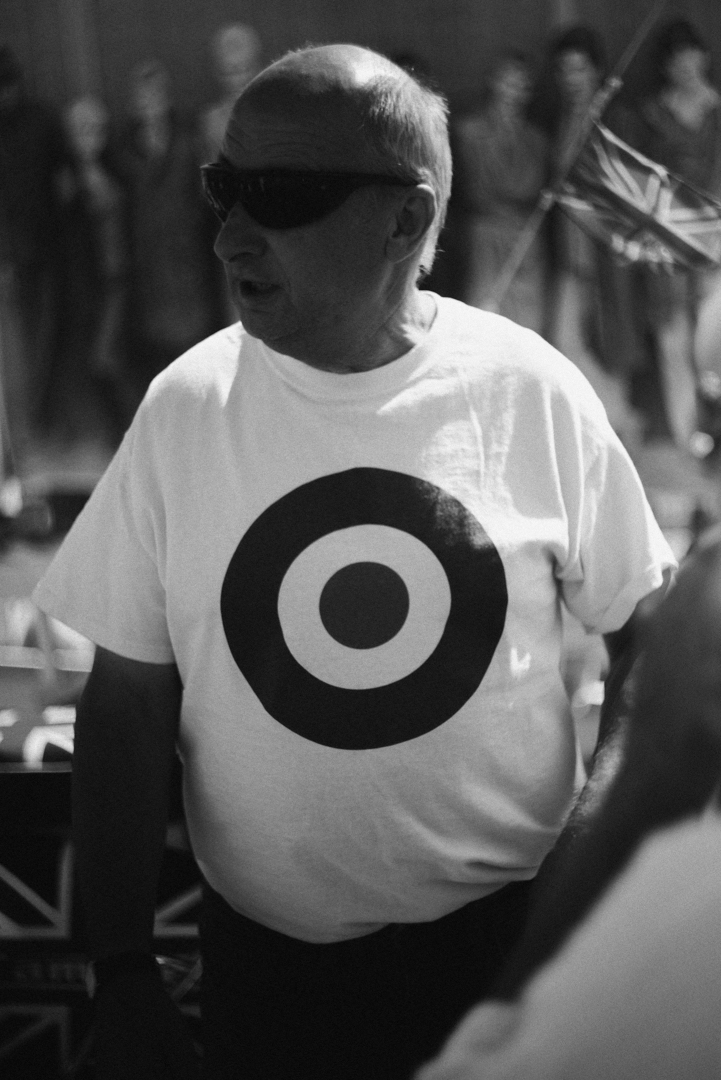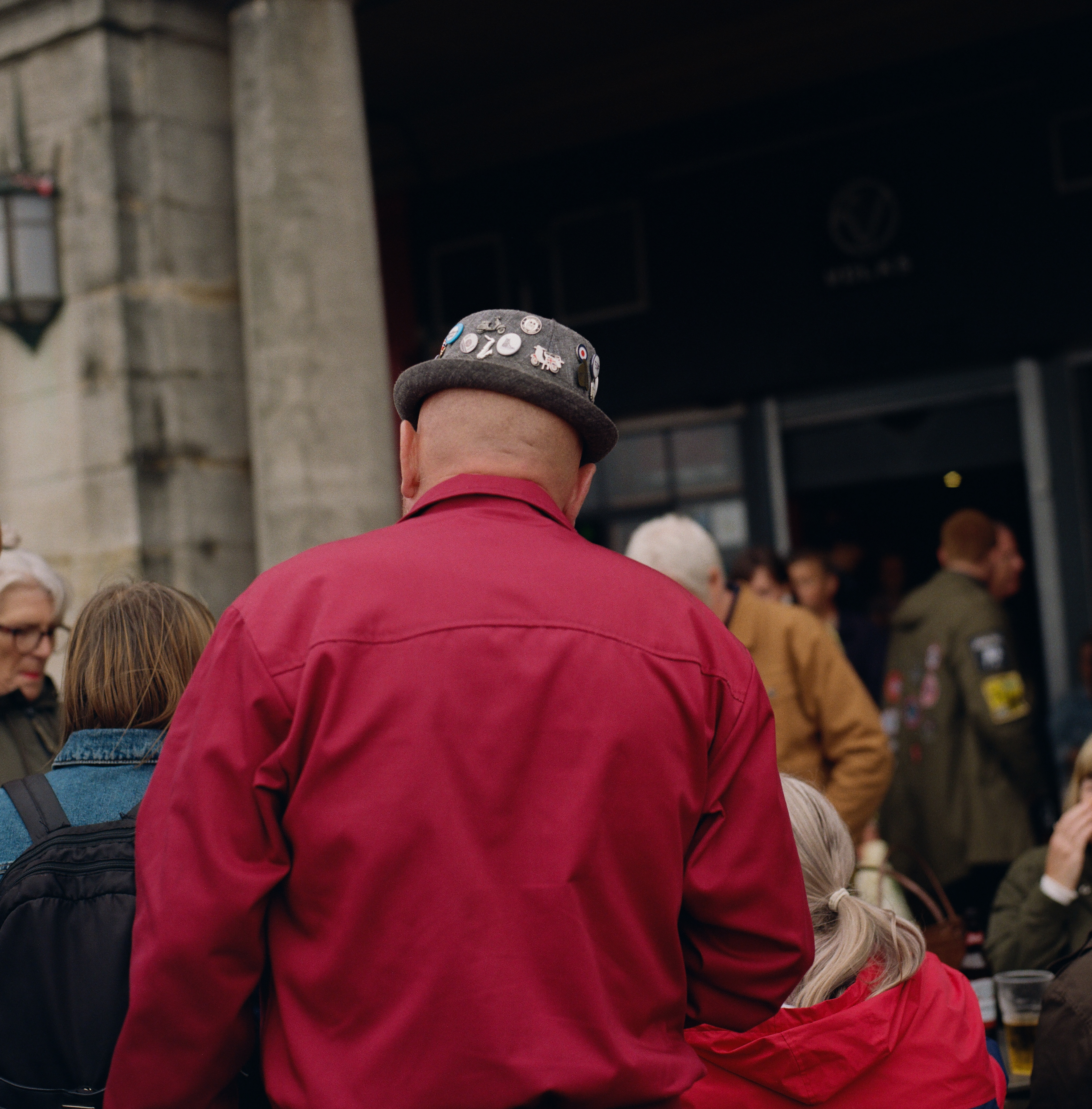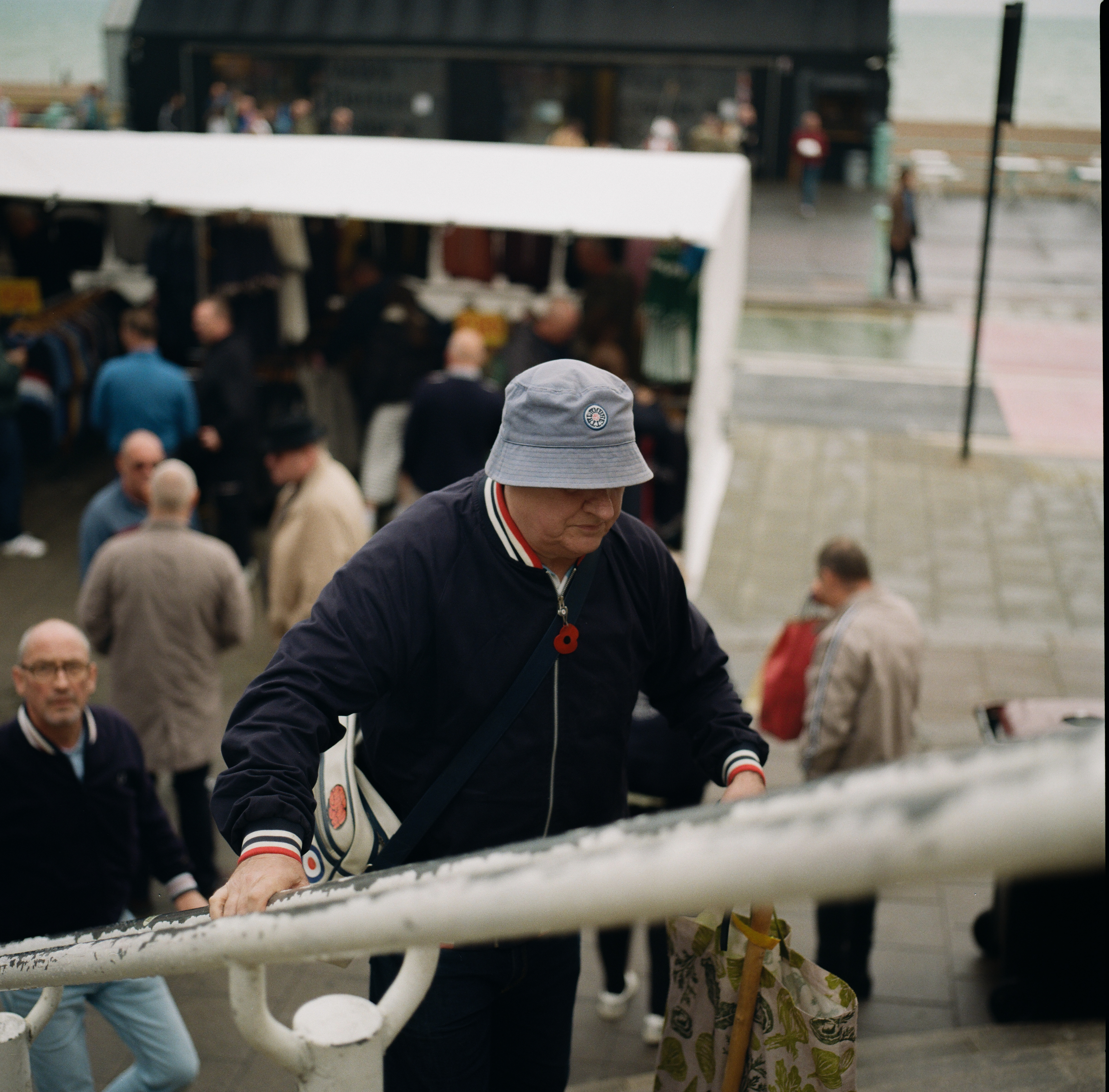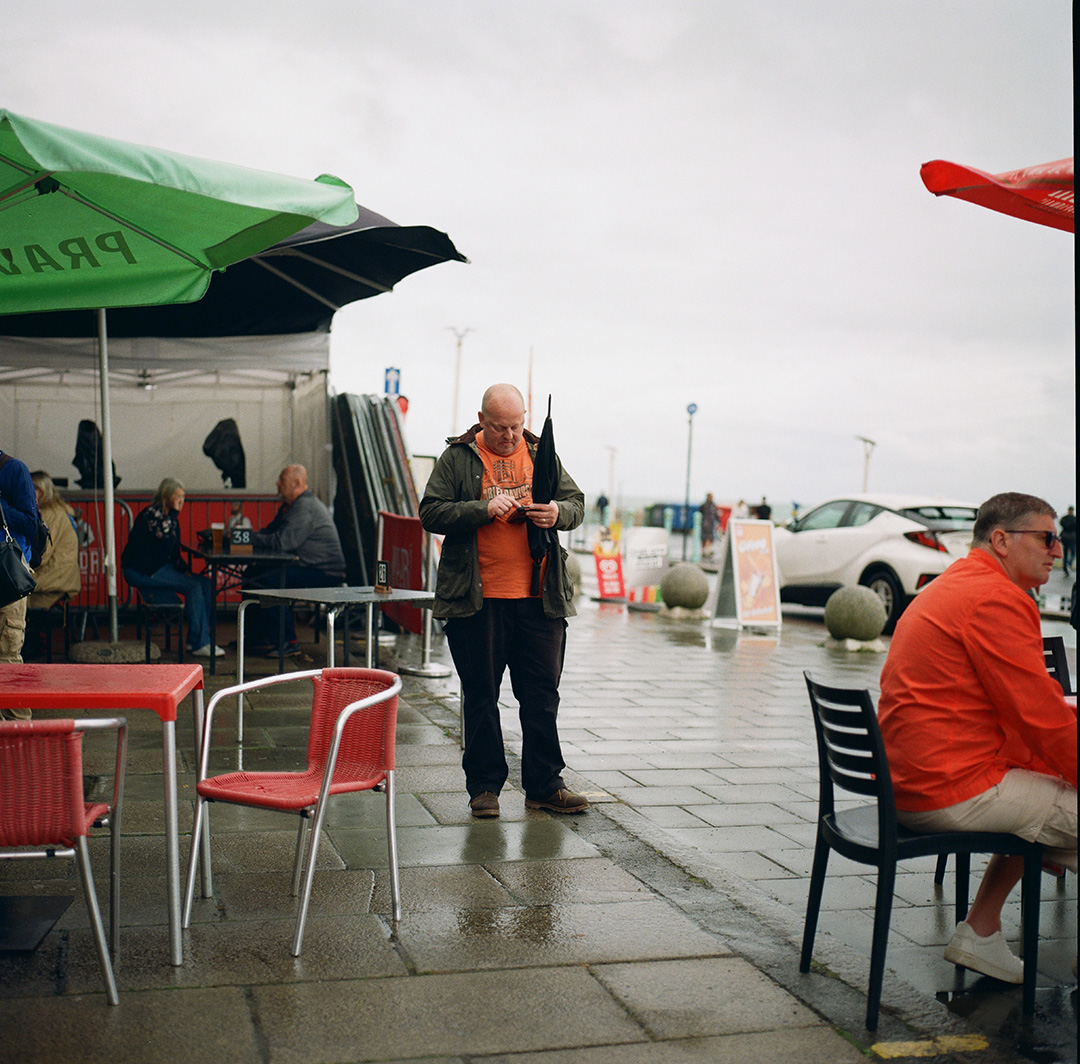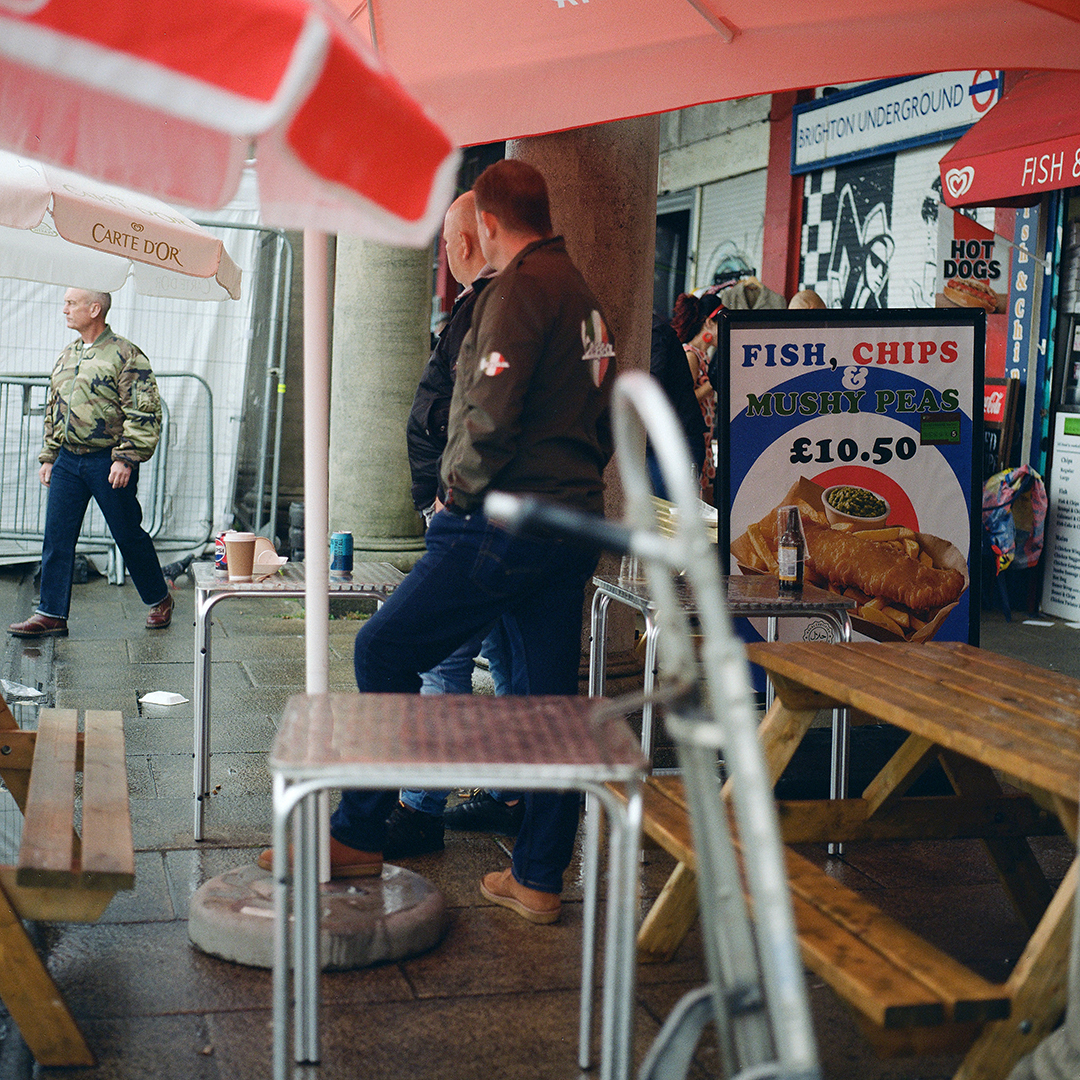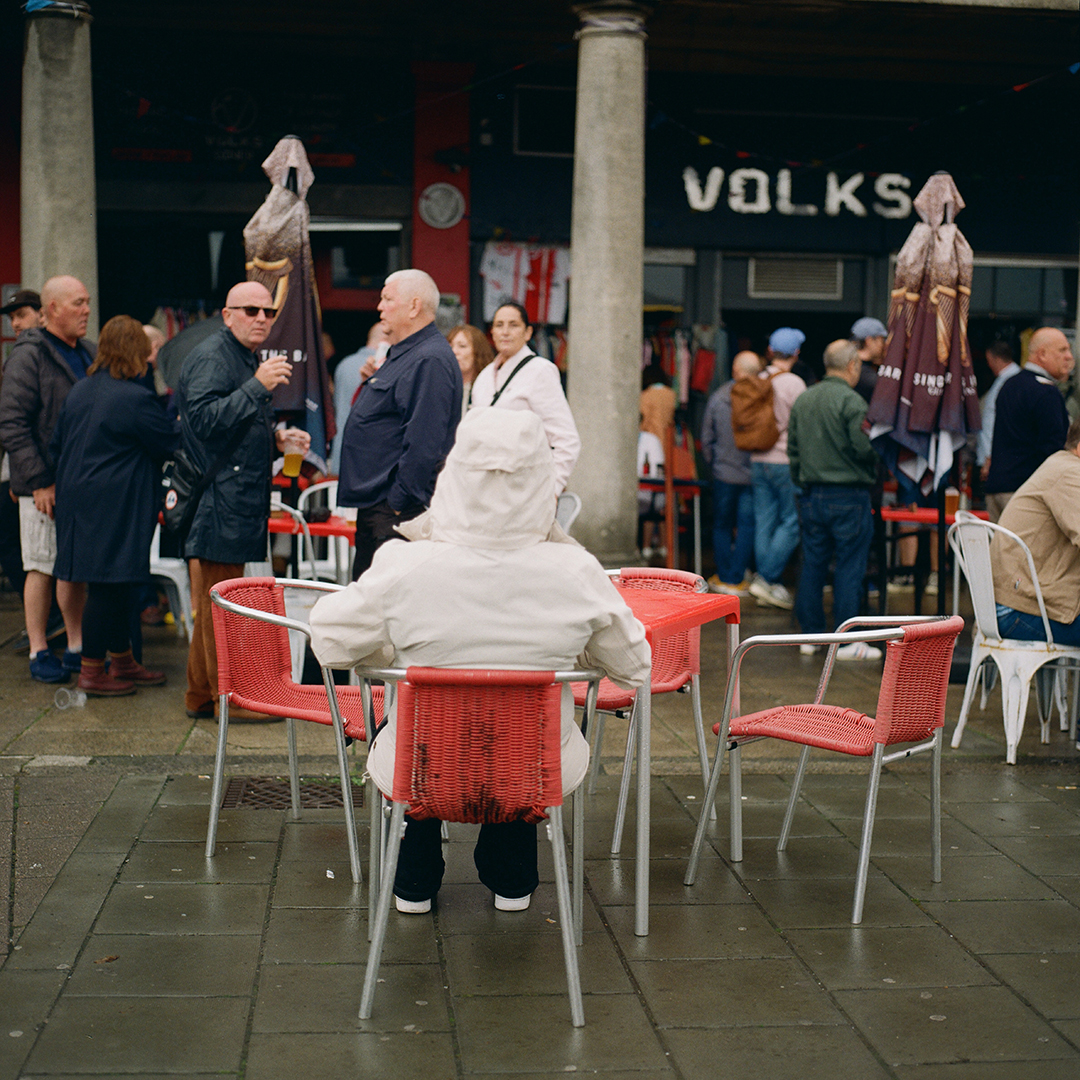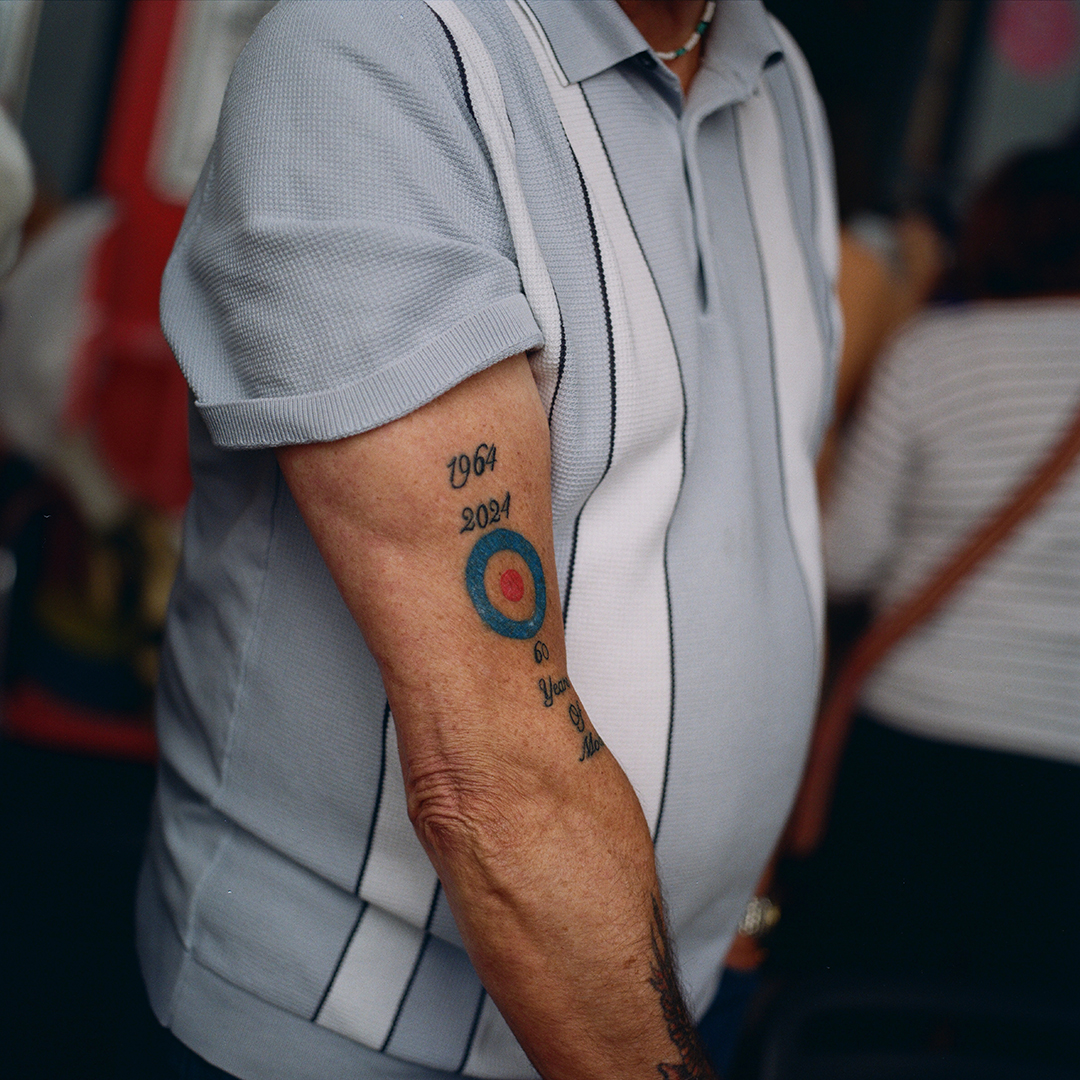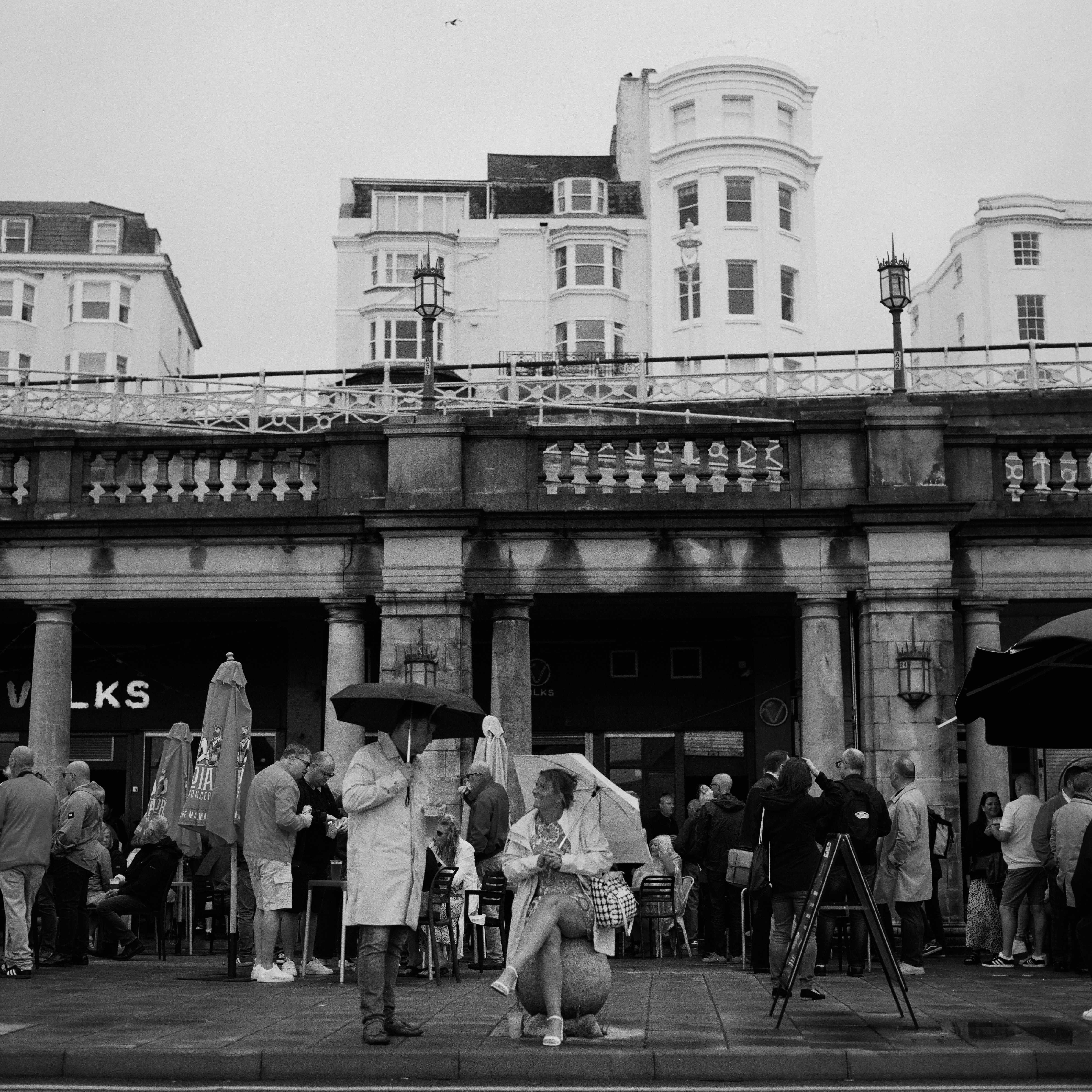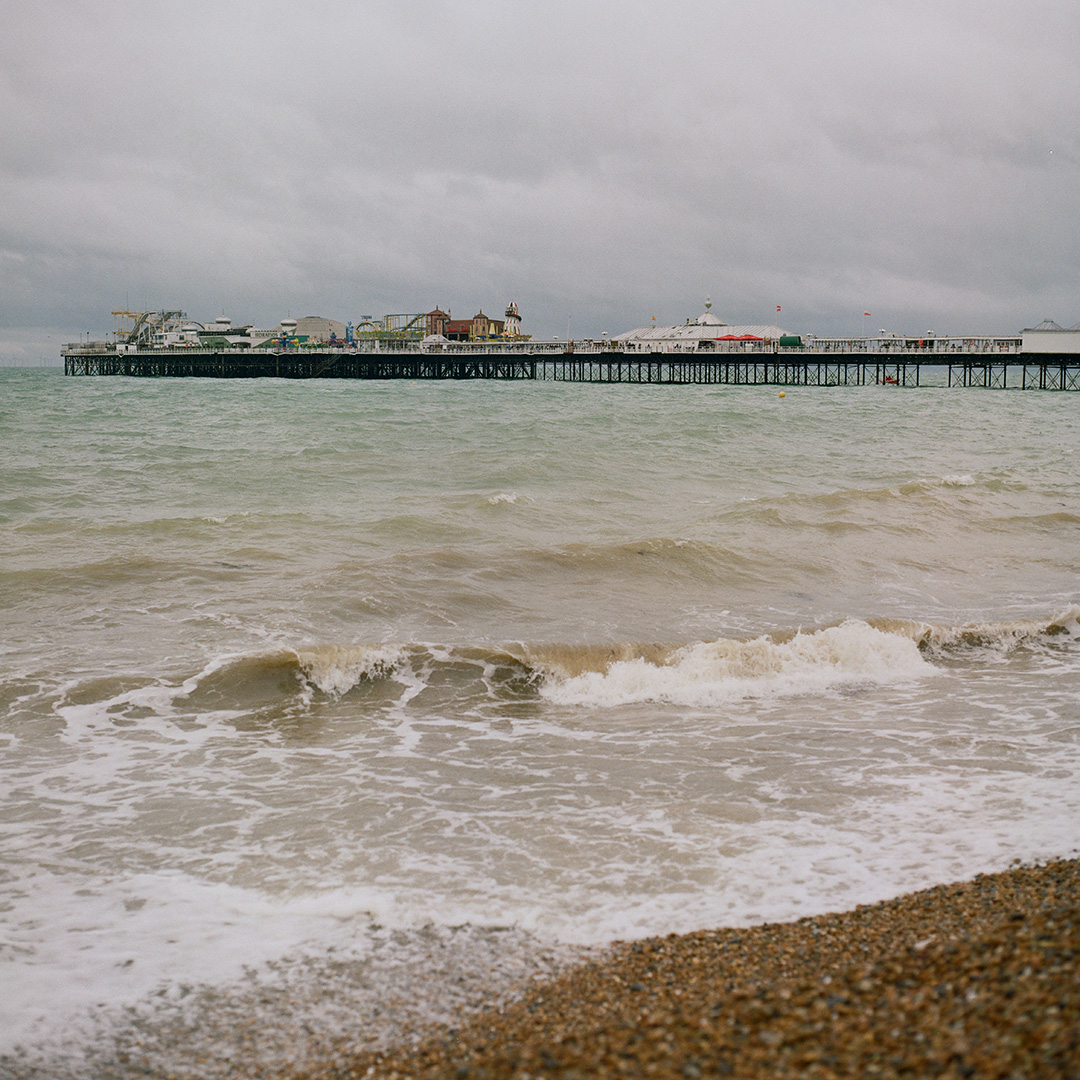The Kids Are Alright

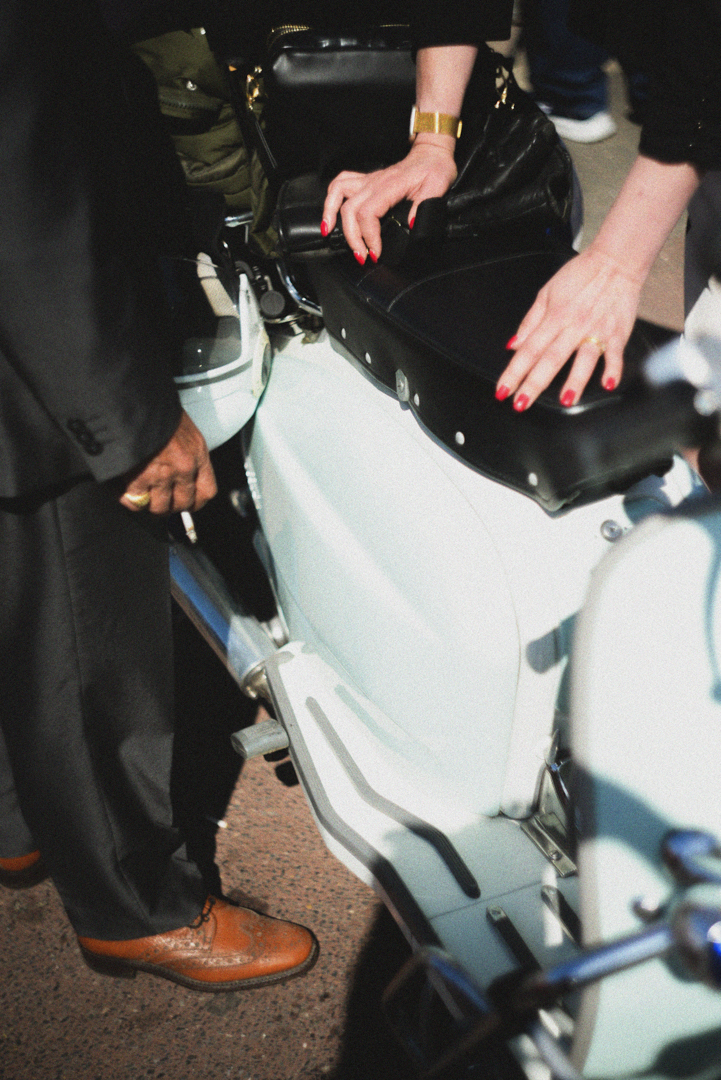
Summer of 2019 - Ongoing
Nostalgia, suits and rejecting the dull
If you go down to Brighton on a hopefully sunny August Saturday you might chance upon the now-rare congregation of men and women dressed in bright, sharp Italian clothing, Fred Perry polo shirts, braces, leather shoes, and of course, Italian scooters fitted with dozens of headlights and flags. The Mod Weekender in Brighton is a living museum exhibition of a post-war British subculture that for a while dominated the streets and imagination of more than a generation but has since given way to new waves of careless youths.
Visiting the Weekender in Brighton you will still see some of the originals, the mods that were there from the very beginning and still proudly represent that special moment in time when they were at the forefront of modernity. Along with their love of Vespas, or Lambrettas for the more idiosyncratic, and Italian fashion that defines their look, mods were always proud of their forward-looking music of the 60s, in a trifecta that never failed to define a subculture. But the legacy of the originals has all but disappeared as you’ll certainly see young people dedicated to the mod culture to the point that you’d think they came straight out of the 60s.
scooter retains its allure as a machine of freedom
From subculture to culture, to memory, mods in Brighton prove that their dedication runs deep. Beyond aesthetics, beyond the fetishism of fleeting, seasonal inductees, there is something there that remains perennially attractive to a certain type of British person who just gets it and belongs. What defined mods in the 60s, along with their skinhead spawns, is a need to define a generation in a period of mass cultural shifts, as the hippies did in the US. Sixty years later, the need to self-identify and stand out from their parent's generation has seen our modern youths look backwards and fall in love with the scooters, fashion, and music whose appeal has gone from modern to vintage. In one way or another, the scooter retains its allure as a machine of freedom and is the starting point for people who are even inadvertently predisposed towards mod life. The difference now is that Vespas have moved up in status. The once cheap small ride, now an original Italian-made Vespa is rarer, almost exclusive in price, and even collectable. Younger mods will go for something more affordable, but their love is as genuine. The quintessentially British look of the 60s immortalised in Quadrophenia is complete with stripy shirts, ties, checkered jackets and in the winter, the iconic parka. The culture seems to have changed in everything but appearance and that museum feeling is accentuated in the sheer number of mods giving attendance to the yearly convention, basking in both the joy of being with one’s tribe and also in a certain pride that comes from attracting attention for a uniqueness that now seems ephemeral. They’re happy to have their photos taken, showing off their impressive scooters they’ve spent years modifying, and of course, sharing their stories from a time when mod culture made national headlines. Though they are not now that strength which in old days moved earth and heaven, that which they are, they are. Forever mods.
